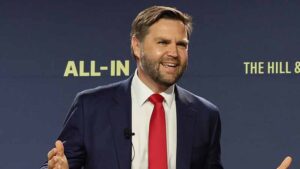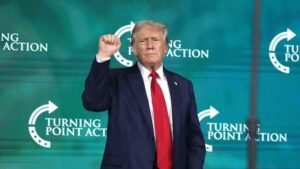
Via/AP
Acting Secret Service Director Ronald Rowe testified before the Senate Judiciary Committee recently, revealing that Thomas Crooks, the shooter who attempted to assassinate former President Donald Trump, was not the only person on the Secret Service’s radar that day. Rowe’s testimony, given on Tuesday, has raised questions about the agency’s handling of security during the event and the protocols in place to protect high-profile individuals.
As reported by Newsweek, Rowe acknowledged the security failure but explained that Crooks had not been identified as a threat when Trump began speaking. Rowe stated, “There were other calls that day of individuals who came to the attention of law enforcement…regarding the assailant, that never really rose to a level of we should not put him out there.
Had we known that there was a dangerous individual out there, we would never let a protectee go out on stage.” When questioned by Senator John Cornyn about when a suspicious individual becomes identified as a threat, Rowe highlighted, “I think it’s also when a weapon or some other dangerous item is then presented.”
He further explained, “At that time, Senator, suspicion had not risen to the level of threat or imminent harm.” Despite this, many criticized the Secret Service for their handling of the situation. Former Secret Service Director Kimberly Cheatle faced calls for resignation after the incident, eventually stepping down and allowing Rowe to assume the role of Acting Director.
The shooting has led to an internal investigation and legislative action. House Speaker Mike Johnson recently announced the creation of a task force to investigate the assassination attempt. He said, “There’s a deadline of early December for the final report but we expect and anticipate interim reports along the way.
That work will begin in earnest, they will be issuing subpoenas. We will get down to the bottom of this.” According to the New York Post, reports have also surfaced about internal complaints from Trump’s Secret Service detail. They claim they were not informed of local police tracking Crooks or alerted to his suspicious behavior in the crucial minutes leading up to the shooting.
In a statement, Secret Service spokesman Anthony Guglielmi said, “As it relates to communications at the rally, the Secret Service is committed to better understanding what happened before, during, and after the assassination attempt of former President Trump to ensure that never happens again.
That includes complete cooperation with Congress, the FBI, and other relevant investigations.” On July 13, at a campaign rally in Butler, Pennsylvania, Crooks, 20, opened fire on Trump while he was on stage, injuring his ear.
This chaotic incident resulted in the death of a supporter on the spot and left two others seriously injured. Crooks was subsequently killed by the Secret Service. The shocking event has led to massive criticism of the Secret Service’s actions leading up to the shooting.


